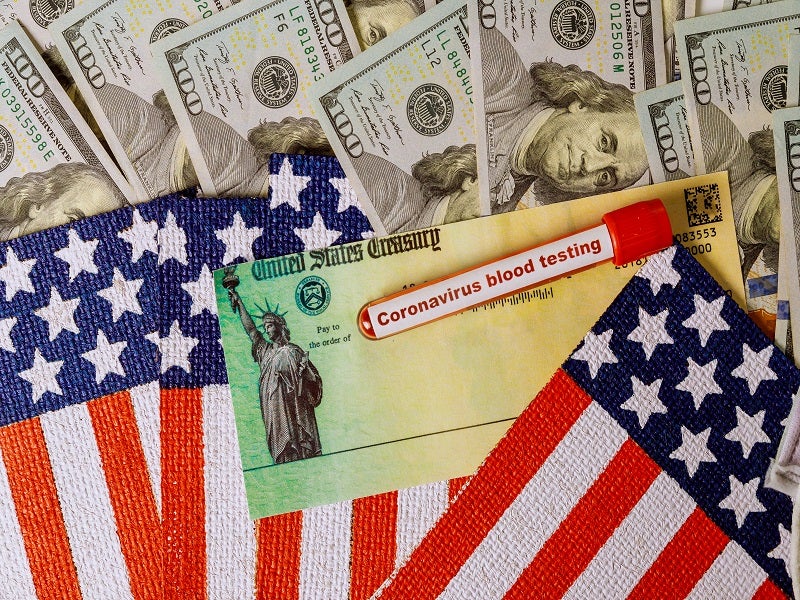Strict lockdown measures may be needed to control the surge in cases in the US as the country faces the risk of a double dip recession. As inequalities continue to rise in emerging economies, there is an increasing need to minimise offshore shore tax havens, macroeconomic influencers share their views on the Covid -19 impact.
Rafael Domenech
Rafael Domenech, head of economic analysis at BBVA Research, shared an article on how a surge in Covid-19 cases may lead to a double dip recession in the US. Additional federal funding, severe lockdowns and increased spending on Covid-19 testing may be needed to address the surge in cases.
Compared to other countries, lockdowns in the US have not been effective in controlling the surge in cases posing a threat to economic recovery. Further, the delay in testing with a seven day wait for results is proving ineffective in curbing the spread of infections.
A double-dip recession maybe the worst case scenario if the virus is not brought under control, the article adds.
US Covid-19 surge could trigger a double-dip recession, by @gavyndavies
The virus’s effective reproduction number, known as R, is now above the critical level of 1 in all but five of the US’s 50 states.https://t.co/dD8NaEkJE6 @financialtimes— Rafael Domenech (@rdomenechv) July 20, 2020
 GlobalData Strategic Intelligence
GlobalData Strategic IntelligenceUS Tariffs are shifting - will you react or anticipate?
Don’t let policy changes catch you off guard. Stay proactive with real-time data and expert analysis.
By GlobalData
Gillian Findlay
Gillian Findlay, an economist and data analyst, shared an article on how economies with the highest inequalities have several common economic indicators, which have emerged into the forefront amid the Covid-19 pandemic.
South Africa, Namibia, Eswatini, Lesotho and Brazil are of the countries plagued by high unemployment rates, tax-to-GDP ratios, government wage bill, and government debt. Traditional economists believe that more government spending will help fix the inequalities but rather the focus should be on fixing inefficiencies and crime, the article adds.
Massive reforms aimed at removing inequalities, corruption and poverty are essential to break the cycle, according to the article
“The world's 10th highest tax country in the highest tax region in the world with the largest share of GDP going to pay civil servant wages has the highest world's unemployment rate and highest inequality. The story no one talks about.” https://t.co/rNDa9TJnYN
— RUAN JOOSTE (@DURITZ79) July 20, 2020
Konstantina Beleli
Konstantina Beleli, an economist, shared an article on how money stashed away in offshore financial centres (OFCs) has drained countries of the resources needed to fight crises such as the pandemic. OFCs are estimated to hold more than $36tn in cash, gold, and other securities.
Countries such as the US and UK have taken steps to identify such accounts and taking necessary legal action but minimising or eliminating these tax avoidance mechanisms remains challenging. A collective effort by countries to eliminate tax havens can help in securing the much needed resources to fight future crises.
”Offshore tax havens have exacerbated income inequality, increased global financial instability, and allowed multinational corporations and their shareholders to pocket trillions of dollars in what they should have paid in taxes.”
@ForeignPolicy https://t.co/VppFzdFsQ8
— Informal Economy (@EconomyInformal) July 17, 2020
Prof. Steve Hanke
Prof. Steve Hanke, an economist, shared an article on Lebanon’s currency crisis. A medical centre of the American University of Beirut has laid off more than 500 people due to the crisis bringing the country onto the verge of a health crisis.
The currency crisis ensued after the Lebanese pound, known as the lira, lost approximately 80% of its value. The pandemic further aggravated the crisis resulting in the loss of more than 220,000 jobs between October and February. The layoffs at the medical centre are the latest among job losses in the country.
https://twitter.com/steve_hanke/status/1285205320252272641




